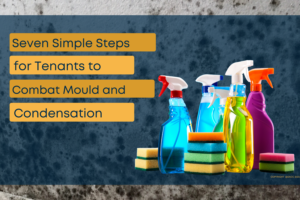The latest figures published in the Crime Survey for England and Wales for the year up to September 2021 show some interesting statistics, as patterns of crime have been significantly affected by the pandemic.
Reported incidents decreased for almost all types of crime over what was a time of lockdowns and social restrictions. The exceptions to this were – perhaps unsurprisingly – for fraud and computer misuse which both saw dramatic increases on the previous data of 36% and 89% respectively.
Burglary saw a decrease of 21% on the previous year which while good news overall, is little consolation if you are sadly the victim of a break-in. So, in private rented property where does responsibility lie for repairing any damage caused by a burglary?
Tenancy agreements show that landlords have a responsibility for providing a secure property in a good state of repair and that it is also usually the landlord who is liable to repair damage caused to the property through any crime. This includes any temporary measures needed to make the property immediately secure after a break-in, like boarding up broken windows or doors.
All responsible landlords will have buildings and contents insurance covering any damage that is caused inside or outside the property. This will include hallways in flats and other communal areas, such as shared gardens. Any contents owned by the landlord and identified in the tenancy agreement will also be covered by this.
All items owned by the tenant should be covered by their own insurance, as the landlord has no responsibility for any belongings, other than their own, that have been stolen or damaged.
In the case where there may be negligence on the part of the tenant, both insurance companies may refuse to pay all or any part of the claims. This might include, for example, if access was gained through an open window and the landlord’s policy states that the occupant must ensure that all windows and doors are locked when the property is empty. In this case and if the insurance company didn’t pay, the landlord would need to accept the cost themselves or pursue the tenant for payment.
Following a break-in, additional security may be desirable and while landlords generally want to provide the most secure property they can, they don’t have requirements on specific security measures. Tenants may wish to add further security themselves and they can – with permission from the landlord. It is worth noting that any new or additional sets of keys must be given to the landlord or agent.
Everybody deserves to feel safe and secure in their home and at Pennington we can advise on any security-related measures for your property and make sure the measures are installed correctly through certified companies. If you would like further information on this or have any questions at all on property issues, please do not hesitate to contact me as I am always happy to help.






